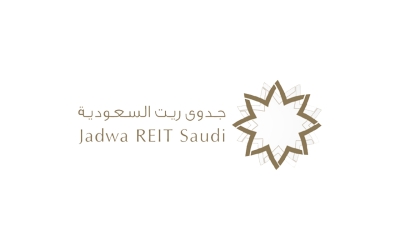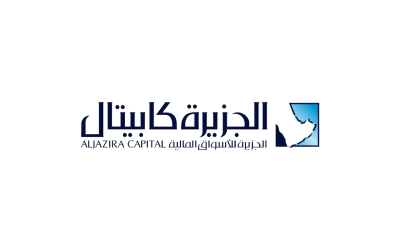
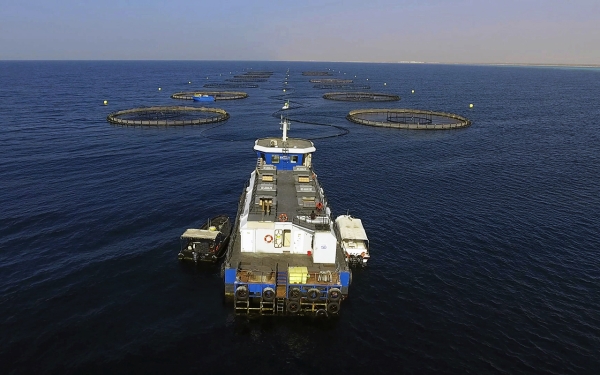
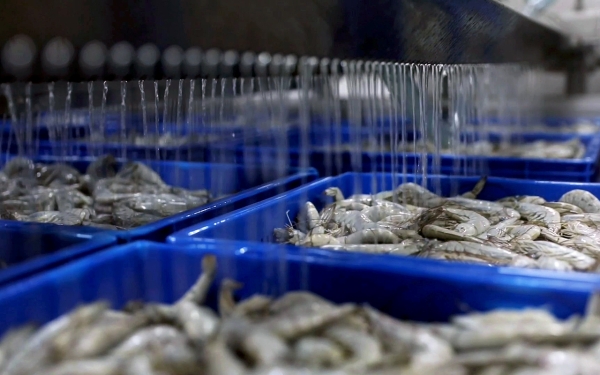
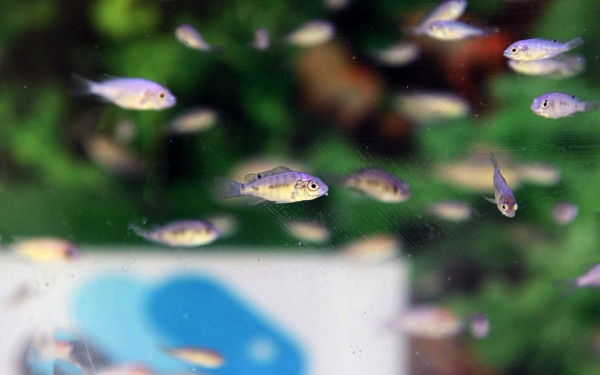
Fish farming in the Kingdom of Saudi Arabia is an investment process purposed to maximize the value of the Kingdom's natural resources and foster food security therein. Numerous kinds of farming are conducted in the Kingdom, including aquaculture, e.g., fish, crustaceans, shellfish, algae, aquatic weeds, etc., under confinement and control of breeding factors and following standard reference restrictions and standards regulating production processes. Sustainable aquaculture refers to a set of aquaculture practices that ensure the continuation of production processes in an environmentally responsible and economically viable manner. Aquaculture is of two types, the first referring to aquaculture in internal water, through specific fish farms, and the second relating to salty sea water aquaculture in floating cages.
Regulating fish farming in the Kingdom
The law on fishing, exploitation, and protection of marine life in the territorial waters of the Kingdom was promulgated by a decision of the Council of Ministers and the Royal Decree issued in 1987. The Law seeks to achieve fish production self-sufficiency and contribute to national food security.
Fisheries have been exploited in a regulatory and administrative framework that caters to the optimal utilization of them for gross domestic product (GDP). Hence, the Council of Ministers approved the establishment of the National Livestock and Fisheries Development Program (NFDP) in the Kingdom. The program is managed by the Ministry of Environment, Water, and Agriculture (MEWA)in coordination with the relevant entities. It is a comprehensive national strategy for developing the livestock and fisheries sector and lifting its economic and progressive role.
The progressive efforts pursued in the Saudi fish farming sector include the seventh initiative, which is a panoramic plan launched by the Agricultural Development Fund and the Ministry of Agriculture (currently the Ministry of Environment, Water, and Agriculture) in 2012 aiming to create a full-operating entity for the handling and marketing of products in the fisheries sector, decrease costs, limit foreign market competition, and maintain the high-grade quality granted by the Kingdom's environment.
Fisheries and aquaculture sector development
The National Livestock and Fisheries Development Program enhances aquaculture's efforts, development, and growth in the long term. It supports the aquaculture sector to increase its GDP contribution. Aquaculture began in the Kingdom based on recommendations made by international bodies after thoroughly studying the fisheries status in the Kingdom.
The first step was establishing the Fish Farming Centre in Jeddah (currently called Jeddah Fisheries Research Center) in 1982, which came from successful cooperation with the International Food and Agriculture Organization (FAO). The center's objective is to study local species fit for farming, introduce hatching and cultivation techniques, and train national cadres. The Jeddah Fisheries Research Center produced 150 thousand tilapia fish larvae in May 2020. They were distributed on fish farms.
Fish farming offered an added value to the resources of the Kingdom and the fisheries-related aims have been achieved, with its exports becoming one of the Kingdom's strongest. Additionally, the Kingdom secured its position internationally as the primary exporter of white shrimp. This was done with a production capacity that reached sixty thousand t in 2018, of which fifty thousand t were exported to over thirty-two countries around the world. MEWA aims to reach six hundred thousand t of various marine species by 2030.
Financing fish farming in the Kingdom
As a progressive contribution and investment simulation, the Agricultural Development Fund offers financing loans for aquaculture projects. It boosts loan value to 70 percent for modern technology projects. Lending includes several activities, e.g., floating cages, fish hatcheries, shrimp farming, aquaponic systems, and closed-system fish farming in inland waters (water recycling). Aquaculture financing benefits specialized projects, whether run by specialized projects (companies), specialized projects (individuals), or specialized projects (cooperatives).
Aquaculture projects' services offered by the fund are divided into six services: shrimp farming, floating cages fish farming, fish farming, fish production, caviar eggs, trowel fish farming system, and fish and shrimp hatcheries.
In 2020, MEWA launched its aquaculture support service through Zeraai e-platform. The service seeks to preserve, foster, protect, and ensure investment in fisheries. The service allows aquaculture companies to obtain financial support as part of the Agricultural Subsidies Program.
Aquaculture intiatives in the Kingdom
MEWA has five initiatives related to aquaculture under the National Industry Development and Logistics Program, one of the Saudi Vision 2030 programs, including the Investor Attraction Campaigns initiative, which aims to boost investment in the aquaculture sector, the Development of the Infrastructure to Support Maritime Clusters initiative, which aspires to create an engaging investment environment and provide integrated logistics, the Infrastructure Development for Aquaculture Support initiative, which aims to improve infrastructure (hatcheries, feed mills, and processing plants) and achieve sustainability in the aquaculture industry, the Supporting Research and Development to Improve Fisheries Productivity initiative, aimed to introduce new economically viable fish species, develop feeding systems, and guarantee their high quality. Initiatives also include the Marketing Campaigns initiative, which aims to introduce the health benefits and nutritional value of seafood and call for increasing these foods' consumption.
Fisheries and aquaculture research
Jeddah Fisheries Research Center elevates the aquaculture sector while focusing on research and development in marine aquaculture suitable for fish and shrimp farming. It also spreads technical applications for aquaculture and provides training programs. The center aspires to be a leader in the aquaculture applied research sector by 2030, aiming to enhance knowledge, economic prosperity, and sustainable development in the Kingdom.
The center seeks to achieve many objectives in the development of the fish sector. This will come to action through implementing research programs based on identifying economic types of marine finfish and shrimp that are suitable for breeding and commercial production under the local environmental conditions of the Kingdom, in addition to evaluating the numerous types of fish farming systems and determining which is appropriate for application in different regions.
The center works on conducting field studies and research on diseases affecting cultured fish and shrimps. The center also provides the fish farming industry with necessary supplies such as shrimp larvae and fingerlings. Additionally, technical guidance is offered, and feasibility studies are conducted for aquaculture projects.
Silver bream farming
The Kingdom's tremendous advantages in the fisheries sector incentivize it to be among the developed countries with a suitable environment for fish farming. Therefore, the Agricultural Development Fund supports the sector’s projects to increase the Kingdom’s production of farmed aquatic organisms to 970 thousand t annually in 2029. This is at a time when the Kingdom imports about three times the amount of fish it produces locally annually.
MEWA announced in 2019 that it had succeeded in cultivating Silver Bream through commercial projects aimed at fish production with the floating cage system. This work is one of the outputs of the fisheries development applied research project at King Abdullah University of Science and Technology. It seeks to enhance food security, provide high-quality fish, and support economic development in the Kingdom.
Investments in fish farming
Fish farming activities in the Kingdom are actively expanding following the achievement of hefty economic returns that promote investment in the aquaculture sector. NEOM and Tabuk Fisheries signed a memorandum of understanding in 2021 to expand local aquaculture production and apply cutting-edge aquaculture technologies within NEOM.
This investment supports the Kingdom's efforts regarding the aquaculture sector development. It is expected that the fish farm will operate with a production capacity of seventy million fingerlings, making it the largest in the Middle East and North Africa region, with a focus on productivity improvement of local fish species in the Red Sea to contribute to achieving the Kingdom's goal of producing six hundred thousand t of fish products by 2030.
The Saudi fish sector elevated to a new grade in international investments with the approval of the Russian authorities in 2020 for the entry of three Saudi aquaculture companies into the Russian market, with an expected exportation value of about ten to fifteen thousand t of fish and shrimp annually, with a sales value of SAR293 million, exported to five countries, including Belarus, Armenia, Kazakhstan, and Kyrgyzstan.
The sector is the fastest-growing food sector with an annual rate of 6 percent, especially since the Kingdom has abundant natural resources along a coastline exceeding 2,600 km and a capacity for five million t of fish.
Fish farming in coastal cities
Aquaculture investments are active in coastal cities. In the Eastern Province, fish farms support local and international markets with more than 540 annual t of fish, shrimp, and caviar eggs. The Eastern Province hosts twenty-nine fish farming projects that contribute to national income diversification in line with Saudi Vision 2030.
Some projects achieve added value from fisheries revenues as fish farming projects are distributed among the city of Dammam, and the governorate of al-Qatif, Hafar al-Batin, and al-Ahsa. These projects aim to increase fish and shrimp production capacity to 1,270 t annually. Fish farming projects reached twelve by 2020, and fourteen others are in operation.
Fish farming investments are being carried out in Tabuk Province as well. The fish lake at the waterfront in Duba hosts more than thirty thousand tilapia and gilt-head bream fish. These fish were farmed in the vicinity of Prince Fahd Bin Sultan Marine Park waterfront. The goal was to introduce the nature of fish farming that characterizes the Red Sea environment northwest of the Kingdom and the importance of investing in aquaculture that can be controlled under suitable environmental conditions.
Production of seafood from sunlight
In 2021, the Red Sea Corporate launched an experience for the production of seafood from sunlight and the application of sustainable solutions based on the latest aquaculture technologies using intense carbon dioxide concentration. This experience is the first of its kind in the Middle East. This technology will enable the company to produce seafood under sunlight in the heart of the desert. The company will be able to convert sunlight into seafood, foster the oceans' biodiversity, and offer sustainable food resources for tourists during their stay, regardless of their destination.
Related quizzes
Related articles
